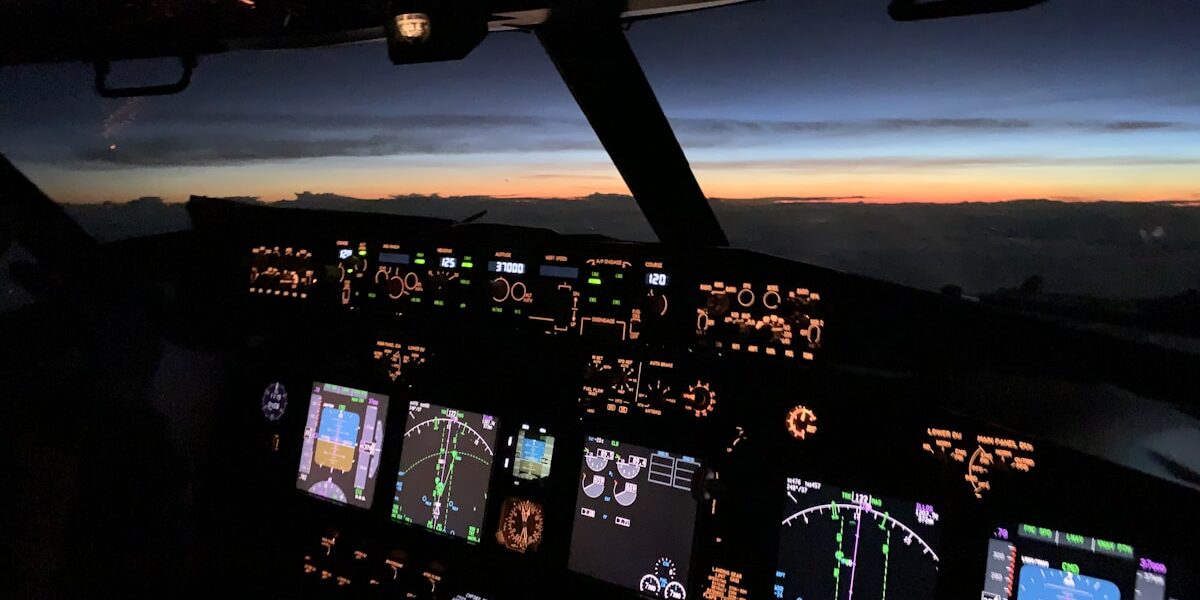Southwest Pilot Salary
Southwest Pilot Salary
Becoming a pilot for a major airline such as Southwest is a career dream for many aviation enthusiasts. Beyond the passion for flying, one significant aspect of this profession is the compensation. Understanding the salary structure at Southwest Airlines provides insight into the financial rewards associated with this career path.

Starting Salaries for Southwest Pilots
New pilots at Southwest Airlines can expect to start at a competitive salary when they first join the company. As of recent data, the starting annual salary for a First Officer at this airline is approximately $57,000. The entry-level pay is intended to reflect the rigorous training and certification pilots must complete before they can operate commercial aircraft.
Progression and Pay Increases
Salaries for pilots at Southwest increase with experience and tenure. Pilots undergo periodic evaluations and receive raises based on both seniority and performance. Typically, the salary for a First Officer with 5 years of experience can rise to around $100,000 annually. The pay structure is designed to reward pilots as they log more flight hours and gain further expertise.
Salary of Captains
Captains, who hold the highest rank among pilots, command significantly higher salaries. The transition from First Officer to Captain represents a substantial boost in pay. For example, a Captain at Southwest with less than five years of experience can earn around $200,000 per year. With more than ten years of experience, a Captain’s salary can increase to over $250,000 annually. These figures highlight the financial growth potential within the airline’s career development framework.
Overtime and Additional Pay
Beyond base salaries, pilots at Southwest can earn additional income through overtime and incentive pay. Flight schedules that exceed standard flying hours qualify for overtime pay, which can be a lucrative supplement to a pilot’s salary. Additionally, long-haul flights or time spent on reserve duty may come with extra compensation. These add-ons are crucial for pilots who want to maximize their earnings.
Benefits and Perks
Southwest Airlines offers a comprehensive benefits package to its pilots. Apart from the standard health, dental, and vision insurance, pilots receive generous retirement plans. The 401(k) plan is particularly notable for the company’s matching contributions. Furthermore, pilots enjoy vacation and sick leave benefits, enhancing their overall compensation package. Travel perks, including free or discounted flights for pilots and their families, provide additional value.
Training and Development
Pilots at Southwest benefit from continuous training and professional development. The airline covers the cost of recurrent training, ensuring pilots remain updated on safety protocols and operational procedures. This commitment to training not only enhances pilots’ skills but also contributes to their confidence and job satisfaction. The airline’s focus on employee growth is reflected in pilot retention rates and job satisfaction metrics.
Comparative Salary Analysis
The salary structure at Southwest is competitive compared to other major airlines. For instance, pilots at Delta and American Airlines have similar earning potential. However, Southwest differentiates itself with its no-layoff policy, providing job security that is highly valued in the volatile aviation industry. When considering total compensation, including benefits and job security, Southwest remains an attractive employer for many aspiring pilots.
Regional Discrepancies
While base salaries are standardized across the company, regional factors can influence overall compensation. Pilots based in high-cost-of-living areas may receive location-specific adjustments. Additionally, state and local taxes can affect take-home pay. It’s important for pilots to consider these regional discrepancies when evaluating their earnings and potential relocation for job assignments.
Union Influence
The Southwest Airlines Pilots Association (SWAPA) plays a crucial role in negotiating salaries and working conditions. Union representation ensures that pilots’ interests are protected in contract negotiations. SWAPA’s efforts have contributed to securing competitive wages, improved work-life balance, and favorable scheduling practices for pilots. The union’s presence is a key factor in maintaining a positive relationship between the airline and its pilot workforce.
Overall Job Satisfaction
Job satisfaction among Southwest pilots is influenced by more than just salary. The company culture, characterized by a focus on employee well-being and open communication, contributes significantly to pilot morale. Pilots appreciate the flexibility in scheduling, the support from management, and the camaraderie among colleagues. These factors, combined with competitive pay, make Southwest a desirable workplace for pilots in the aviation industry.
Career Longevity
Pilots at Southwest can look forward to lengthy, prosperous careers. The airline’s strong market position and financial health provide stability, allowing pilots to plan long-term career growth within the company. Those committed to advancing within the ranks can anticipate continued salary growth and opportunities for leadership roles. The pipeline for promotion from First Officer to Captain and beyond is well-defined, with clear milestones and expectations.
Future Prospects
The outlook for pilot salaries at Southwest remains positive. Industry trends indicate ongoing demand for qualified pilots, driven by retirement waves and aviation growth. As the aviation sector recovers from global disruptions, salary prospects and job opportunities are expected to improve. Future pilots can anticipate stable and potentially increasing salaries as the industry rebounds.
Entry Requirements
To qualify for a pilot position at Southwest, candidates must meet several prerequisites. These include a Commercial Pilot Certificate, a minimum number of flight hours, and passing medical and background checks. The stringent requirements ensure that only highly qualified individuals join the pilot ranks at the airline. This stringent selection process is part of why pilots at Southwest are compensated well, reflecting their expertise and dedication.
Gender Pay Equity
Southwest Airlines is dedicated to promoting gender pay equity. The airline’s commitment ensures that male and female pilots receive equal pay for equal work. Initiatives to encourage more women to pursue careers in aviation are part of Southwest’s broader diversity and inclusion strategy. With these efforts, the company aims to attract a more balanced workforce while maintaining fair compensation practices.
Conclusion
When considering a career as a pilot at Southwest Airlines, understanding the salary and compensation details is crucial. The airline offers competitive starting salaries, regular pay increases, and substantial benefits. The supportive company culture and job security contribute to overall job satisfaction. With ongoing opportunities for advancement, piloting for Southwest Airlines represents a financially and professionally rewarding career choice.


